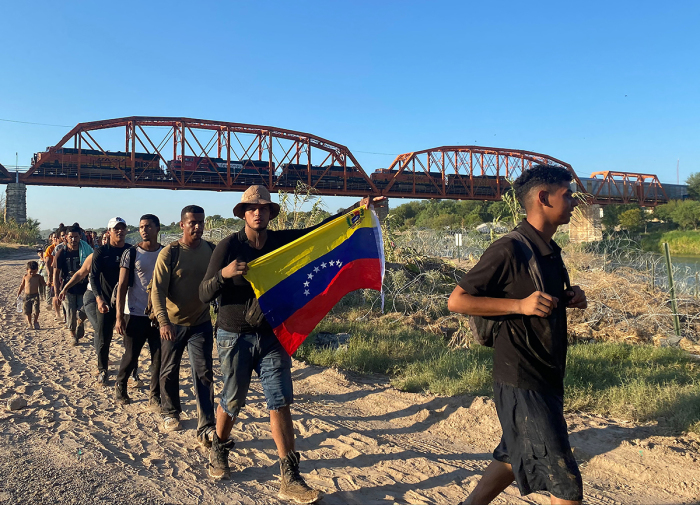
Declaring a class-action lawsuit, a federal judge issued a nationwide block of President Donald Trump’s executive order on birthright citizenship after the U.S. Supreme Court limited lower courts’ ability to issue universal injunctions against the order.
U.S. District Judge Joseph N. Laplante of the District of New Hampshire, a George W. Bush appointee, issued an order Thursday granting provisional class certification for the plaintiffs.
Laplante concluded that the plaintiffs have demonstrated that they adequately represent a broader scope of people in the United States, specifically those who are the children of noncitizens residing in the U.S., regardless of their legal status.
The Trump administration has “acted on grounds generally applicable to the class in its entirety, thereby making appropriate final injunctive and declaratory relief for all class members,” the judge wrote.
“In light of the above, this court grants the petitioners’ motion and provisionally certifies the following class for the purpose of preliminary injunctive relief,” he added.
Laplante stayed his order for seven days, pending an appeal from the Trump administration.
In January, Trump issued an executive order removing automatic citizenship to children born to undocumented immigrants in the U.S., with the order slated to take effect on Feb. 20.
Although the 14th Amendment says, “All persons born or naturalized in the United States, and subject to the jurisdiction thereof, are citizens of the United States and of the State wherein they reside,” the order asserts that the language was never meant “to extend citizenship universally to everyone born within the United States.”
“The Fourteenth Amendment has always excluded from birthright citizenship persons who were born in the United States but not ‘subject to the jurisdiction thereof,'” Trump’s order stated.
Trump barred the government from issuing “documents recognizing United States citizenship” for newborns whose “mother was unlawfully present in the United States and the person’s father was not a United States citizen or lawful permanent resident at the time of said person’s birth, or … when that person’s mother’s presence in the United States was lawful but temporary, and the person’s father was not a United States citizen or lawful permanent resident at the time of said person’s birth.”
Trump’s order soon faced multiple lawsuits, including one filed by the American Civil Liberties Union and other progressive advocacy organizations.
After multiple courts issued nationwide injunctions against the executive order, the administration appealed to the U.S. Supreme Court to limit the scope of the blocks.
Last month, the Supreme Court ruled 6-3 in the case of Trump, et al. v. CASA, Inc., et al. that district courts could not issue nationwide injunctions except for limited circumstances, like class-action lawsuits.
Justice Amy Coney Barrett delivered the opinion of the court, which did not address the merits of whether the Trump order is unconstitutional. Instead, it focused on the government’s request to limit the injunctions to the named plaintiffs in the lawsuits.
Barrett described nationwide injunctions as “more recent development” that “likely exceed the equitable authority that Congress has granted to federal courts,” adding that courts have “consistently rebuffed requests for relief that extended beyond the parties.”
“The universal injunction was conspicuously nonexistent for most of our Nation’s history. Its absence from 18th and 19th century equity practice settles the question of judicial authority,” she wrote.
















